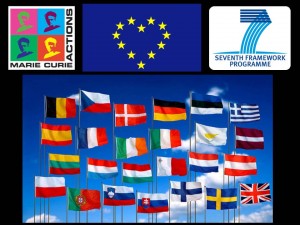We have received information on the following funding opportunities which may be of interest to staff.
Teaching Development Grants from the Higher Education Academy
1. Round 2 of the Individual Grants scheme will open on January 3rd 2012, with a maximum of £7,000 per project, with a focus on employability or internationalisation.
• The submission deadline is February 19th 2012.
• Unsuccessful bids from the previous round could be re-submitted if they can be revised in line with the feedback you received from the HEA.
• However, any bids that do not satisfy the two key principles of student engagement and outputs of benefit beyond BU, or do not thoroughly address ethical issues, will not be considered by the reviewers. So it is critical to get these sections as strong as possible.
• Successful bids from the July 2011 round are here: http://www.heacademy.ac.uk/teaching-development-grants
2. The Collaborative Grants scheme opens on February 27th 2012, with a submission deadline of April 22nd 2012.
• The maximum funding per project is £60,000, one bid per institution.
• These can be either collaborative bids between BU and external bodies, or interdisciplinary between different departments within BU.
• With collaborative bids, there must be a minimum of two UK HE partners, but other partners could include FECs, private providers or overseas HEIs.
• The project must be led by a Fellow of the HEA and matched funding is required.
• Some further details are available here to support early thinking, but more information will be available in January.
If you would like to discuss potential projects, please contact Jennifer Taylor, Janet Hanson or Linda Byles (both Janet and Linda are TDG reviewers for the HEA).
MS Society Grants 2012
The MS Society intends to run three grant rounds in 2012:
- Grant Round 1 – PhD Studentships and Innovative Awards
- Grant Round 2 – Project grants and Junior Fellowships
- Grant Round 3 – PhD Studentships and Innovative Awards
The MS Society 2012 Grant Round 1 for Innovative and PhD Studentship awards will open on the 17 January 2012, with a deadline for applications 12 noon on 10 February 2012.
For an overview of all the intended 2012 grant rounds and guidance on how to apply for an MS Society research grant please see thier website: http://www.mssociety.org.uk/ms-research/for-researchers/applying-for-research-grants
What do they fund?
As the largest dedicated charitable funder of MS research in the UK, the MS Society welcomes applications for projects that will increase the understanding of, and find new effective treatments for MS, as well as improve care and services for people affected by MS. The Society will consider any application that is relevant to MS. Applications are divided into two funding streams:
- Care and Services Research Research proposals that are focussed on relieving the symptoms of MS, developing and evaluating services for people affected by MS or exploring the social and economic impact of MS are classified as care and services research applications.
- Biomedical Research Research proposals that are focussed on identifying the causes of MS and/or identifying and developing disease modifying therapies are classified as biomedical research applications. In response to a strategic review the Society has issued a highlight notice for translational and clinical biomedical research and would particularly encourage applicants to submit proposals with this focus.
If you have any questions the society’s research team are happy to answer them at: research@mssociety.org.uk or on: 020 8438 0822.
 There have been a number of strong Research Council bids submitted since my last email, most of which have been run through our internal peer review scheme (the RPRS) which is great news – good luck therefore to Venky Dubey (DEC) for submitting large bids to both the MRC and the NIHR, Barry Richards (MS) for a bid on interactive extremism submitted to the AHRC, Bronwen Thomas (MS) for submitting a bid on researching readers online to the AHRC, Neal White (MS) for being part of a large multi-institution bid submitted to the ESRC’s joint council Connected Communities scheme, and to Genoveva Esteban (ApSci) for a bid on food webs to NERC. One cross-School bid has been submitted this period – good luck to Peter Thomas and Zoe Sheppard (HSC) and Samuel Nyman (DEC) who submitted a joint bid on reducing falls for inpatients with dementia to the NIHR, an excellent example of cross-School working.
There have been a number of strong Research Council bids submitted since my last email, most of which have been run through our internal peer review scheme (the RPRS) which is great news – good luck therefore to Venky Dubey (DEC) for submitting large bids to both the MRC and the NIHR, Barry Richards (MS) for a bid on interactive extremism submitted to the AHRC, Bronwen Thomas (MS) for submitting a bid on researching readers online to the AHRC, Neal White (MS) for being part of a large multi-institution bid submitted to the ESRC’s joint council Connected Communities scheme, and to Genoveva Esteban (ApSci) for a bid on food webs to NERC. One cross-School bid has been submitted this period – good luck to Peter Thomas and Zoe Sheppard (HSC) and Samuel Nyman (DEC) who submitted a joint bid on reducing falls for inpatients with dementia to the NIHR, an excellent example of cross-School working. Congratulations to Rob Britton (ApSci) for being awarded a Marie Curie Intra-European Fellowship grant from the EC – this is excellent news! Congratulations are also due to Genoveva Esteban (ApSci) for winning a contract with the Environment Agency to conduct an aquatic biodiversity survey, Richard Stillman (Apsci) for securing a contract with Halcrow Ltd, Mark Maltby (ApSci) for securing a small bone assessment contract with Bedfordshire County Council, Keith Hayman (ST) for securing a CPD contract with Hall and Woodhouse, Roger Herbert (ApSci) for securing a contract with the Shellfish Association of Great Britain to research pacific oyster issues, and to Mark Dover (ApSci) for winning a contract with Dataloft. Congratulations also to Mike Molesworth (Liam Toms and the CEB team) (MS) for securing a contract with Work Research Ltd, to Steve Calver (and the MRG team) (ST) for winning a number of contracts with local authorities and a repeat contract with the Holburne Museum in Bath, to Bronwen Russell (and the Bournemouth archaeology team) (ApSci) for a securing a number of contracts with Distributed Generation Limited, and to Richard Gordon (ST) for securing a training contract with NEMA..
Congratulations to Rob Britton (ApSci) for being awarded a Marie Curie Intra-European Fellowship grant from the EC – this is excellent news! Congratulations are also due to Genoveva Esteban (ApSci) for winning a contract with the Environment Agency to conduct an aquatic biodiversity survey, Richard Stillman (Apsci) for securing a contract with Halcrow Ltd, Mark Maltby (ApSci) for securing a small bone assessment contract with Bedfordshire County Council, Keith Hayman (ST) for securing a CPD contract with Hall and Woodhouse, Roger Herbert (ApSci) for securing a contract with the Shellfish Association of Great Britain to research pacific oyster issues, and to Mark Dover (ApSci) for winning a contract with Dataloft. Congratulations also to Mike Molesworth (Liam Toms and the CEB team) (MS) for securing a contract with Work Research Ltd, to Steve Calver (and the MRG team) (ST) for winning a number of contracts with local authorities and a repeat contract with the Holburne Museum in Bath, to Bronwen Russell (and the Bournemouth archaeology team) (ApSci) for a securing a number of contracts with Distributed Generation Limited, and to Richard Gordon (ST) for securing a training contract with NEMA..



 The
The 



 Watch this excellent short video from BU’s
Watch this excellent short video from BU’s  The Leverhulme Trust has announced that the Research Leadership Awards are now open to applications. Each university is only allowed to put forward one candidate for this scheme.
The Leverhulme Trust has announced that the Research Leadership Awards are now open to applications. Each university is only allowed to put forward one candidate for this scheme. The first closing date for the current round of the BU Fusion Fund competition is 13 January 2012.
The first closing date for the current round of the BU Fusion Fund competition is 13 January 2012.















 REF Code of Practice consultation is open!
REF Code of Practice consultation is open! BU Leads AI-Driven Work Package in EU Horizon SUSHEAS Project
BU Leads AI-Driven Work Package in EU Horizon SUSHEAS Project Evidence Synthesis Centre open at Kathmandu University
Evidence Synthesis Centre open at Kathmandu University Expand Your Impact: Collaboration and Networking Workshops for Researchers
Expand Your Impact: Collaboration and Networking Workshops for Researchers ECR Funding Open Call: Research Culture & Community Grant – Apply now
ECR Funding Open Call: Research Culture & Community Grant – Apply now ECR Funding Open Call: Research Culture & Community Grant – Application Deadline Friday 12 December
ECR Funding Open Call: Research Culture & Community Grant – Application Deadline Friday 12 December MSCA Postdoctoral Fellowships 2025 Call
MSCA Postdoctoral Fellowships 2025 Call ERC Advanced Grant 2025 Webinar
ERC Advanced Grant 2025 Webinar Update on UKRO services
Update on UKRO services European research project exploring use of ‘virtual twins’ to better manage metabolic associated fatty liver disease
European research project exploring use of ‘virtual twins’ to better manage metabolic associated fatty liver disease